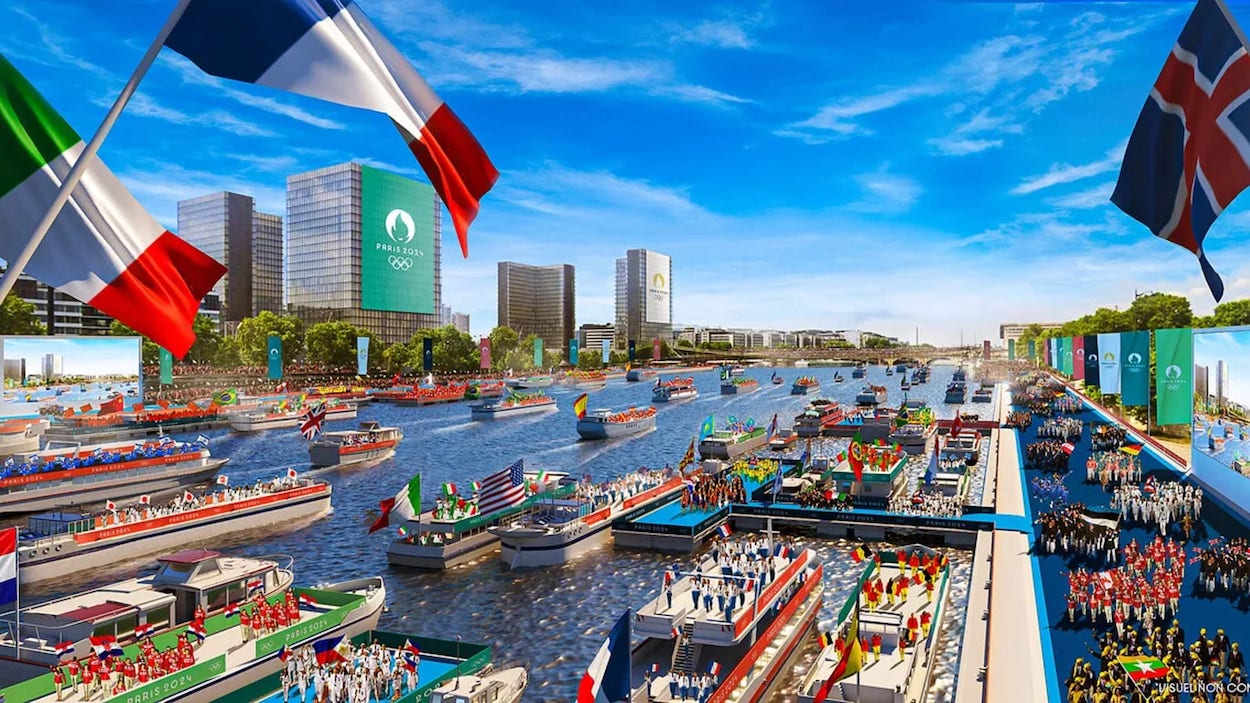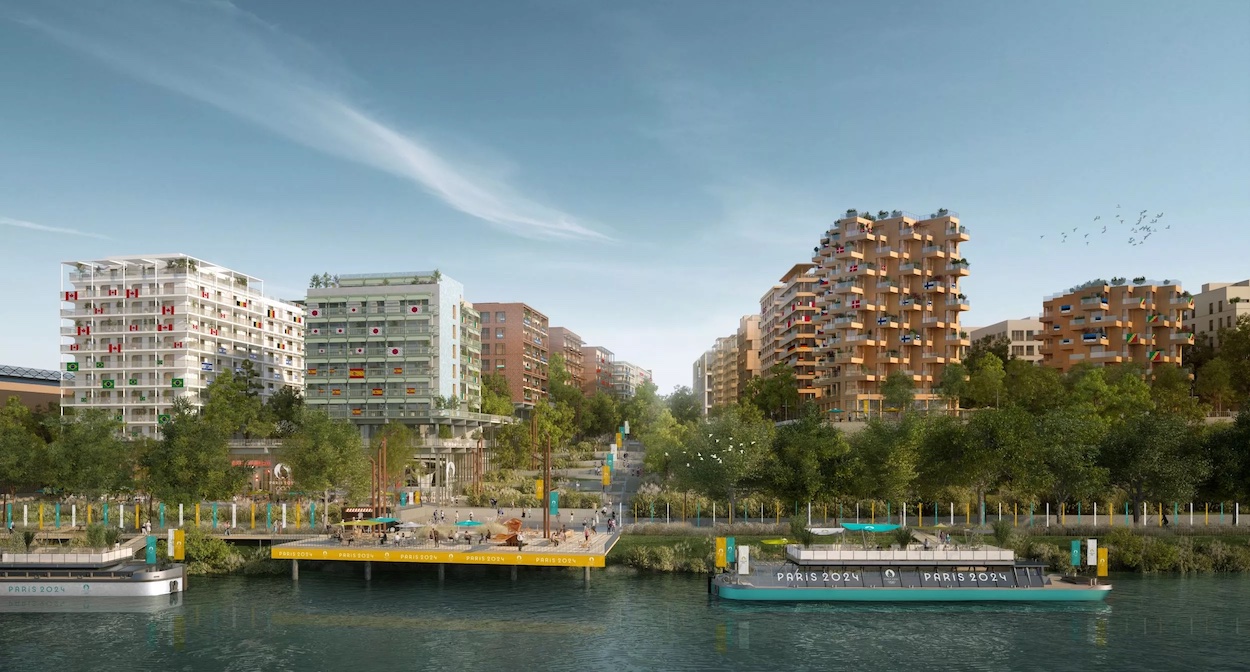Los Angeles 2028, take note: time flies when you hold infrastructure overhauls to a hard deadline. The Paris 2024 Summer Olympics are no longer on the distant horizon, looming just a few federal holidays away. Since 2016, Mayor Anne Hidalgo has led a somewhat utopian campaign, titled Réinventer Paris, for fewer cars and more greenery and bicycling infrastructure to improve the French capital’s quality of life and carbon footprint. The city’s ambitions include reversing pollution in the Seine, implementing “urban forests,” and realizing mayoral advisor Carlos Moreno’s concept of 15-minute cities, in which all daily necessities are within a 15-minute walk or bike ride from home.
The list goes on. Unlike the structural decay of Olympics past, the Paris 2024 Athletes’ Village, designed by architect Dominique Perrault, will be swiftly converted to housing and a standalone neighborhood—a 15-minute city of its own—once the Games wrap up. Its construction must adhere to a carbon emissions budget; its urban planning is done with climate change mitigation in mind. (Think natural cooling, drinking water in public spaces, as well as climate-resistant surfaces and landscaping). With only seven months between now and the opening ceremony, the blissful Paris of the future ought to come soon. In eight weeks, on March 1, a completed Village must be presented to Paris 2024, but recent photos show it to be very much still under construction.

